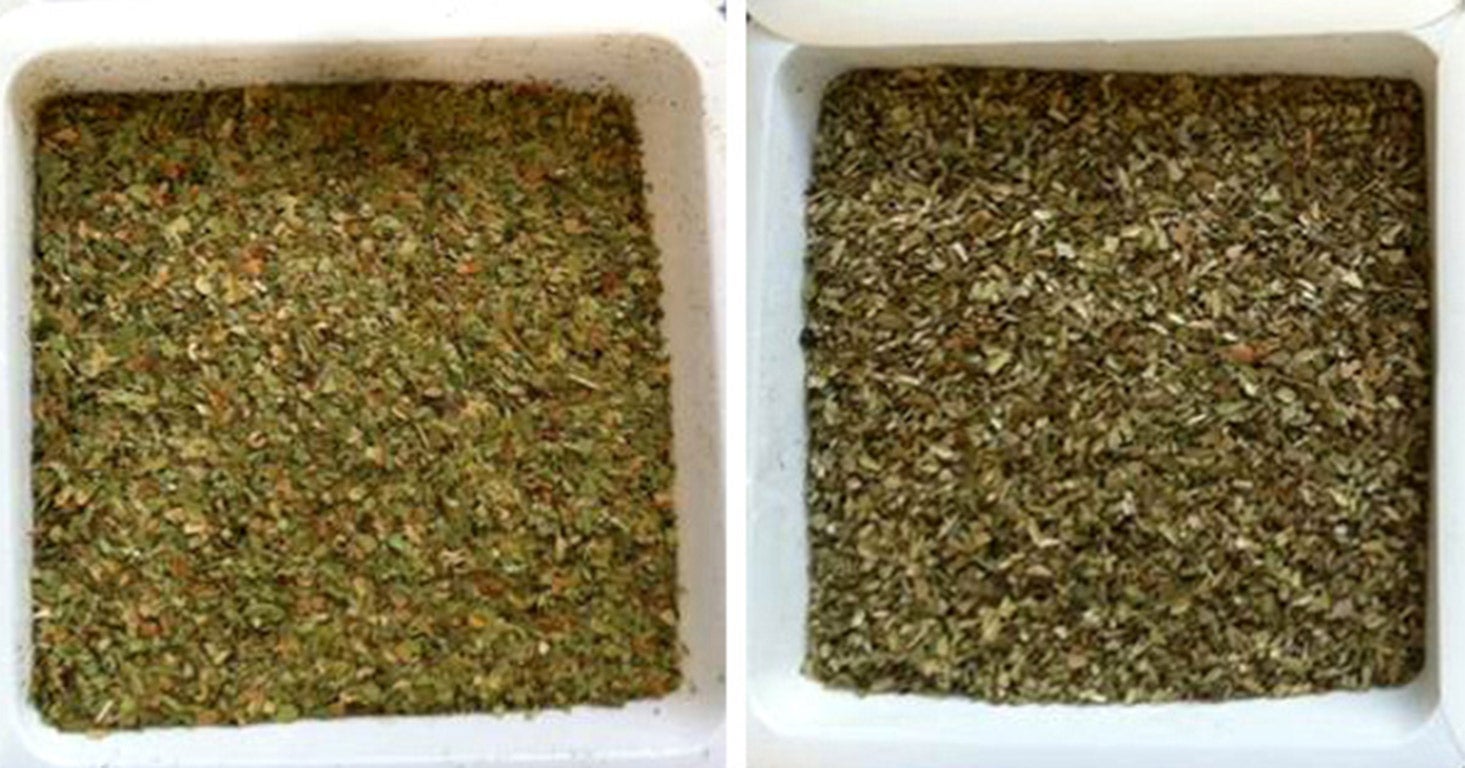Dried herbs and spices such as supermarket oregano may be 'totally different ingredients', says scientist
A new study has found that a quarter of UK-sold dried oregano contained substitute plants – an issue that 'may well' affect other herbs and spices

Customers who buy dried herbs and spices from major supermarkets may in fact be purchasing totally different ingredients, according to the scientist who led the Government’s review into the horsemeat scandal.
Professor Chris Elliott, director of the Institute for Global Food Security at Queen’s University Belfast, sounded the alarm after a study published on 23 July found that a quarter of the dried oregano sold in the UK contained substitute plants – an issue he said “may well” affect other herbs and spices.
Bottles of oregano often contained large quantities of cheaper alternatives such as olive and myrtle leaves, which look almost identical, the research carried out by Professor Elliott discovered. In some cases, as much as 70 per cent of the product was made up of the unlisted ingredients.
The snapshot tests were carried out after researchers received “intelligence” that oregano being supplied to the UK and Ireland may be fake. The results have been shared with the Government’s food safety watchdog, the Food Standards Agency (FSA), which is already investigating the use of undeclared allergens in spices.
“Clearly we have identified a major problem and it may well reflect issues with other herbs and spices that enter the British Isles through complex supply chains,” Professor Elliott said. “Much better controls are needed to protect the consumer from purchasing heavily contaminated products.”
The study, published by the consumer group Which?, tested 78 samples of dried oregano purchased from 50 major supermarkets, smaller shops and online retailers in the UK and Ireland. It found that 19 of the samples, or around 25 per cent, contained other ingredients such as olive and myrtle leaves. The alternatives are not believed to pose a health risk to people who consume them.
“It’s impossible for any shopper to tell, without the help of scientists, what herbs they’re actually buying. Retailers, producers and enforcement officers must step up checks to stamp out food fraud,” said Richard Lloyd, Which?’s executive director.
The group has called on the Government to step up efforts to tackle food fraud after making a series of concerning discoveries in the wake of 2013’s horsemeat scandal, which resulted in a numerous beef products being recalled by supermarkets after tests established they contained horsemeat.
Tests conducted by Which? last year found that 40 per cent of the lamb takeaways sold by outlets across the country contained other meats, and that one in six of the fish bought from chip shops was an alternative to that being advertised.
The FSA said in a statement: “It is vital that the food people buy is what it says it is on the label. It is the responsibility of food suppliers to test their products to ensure consumers are not being misled.
“The potential for food fraud in the herbs and spices sector is something that the FSA is already exploring following concerns about undeclared allergens in spices earlier in the year. We will continue to work with the UK food industry to ensure products are being appropriately tested and correctly labelled. The results from the Which? survey will be followed up with the UK food businesses concerned.”
Other food frauds
Horsemeat
In early 2013 it emerged that processed beef products sold by a number of UK supermarket chains contained horse DNA. The incident resulted in numerous product recalls and tighter testing regimes.
Cumin
In February this year, The Independent revealed how cheap peanuts and almonds were being used in place of more expensive cumin seeds, which enhance flavour in soups, stews and processed meals. The issue was described as potentially more serious than the horsemeat scandal due to the fatal risk it posed to the UK’s 500,000 nut allergy sufferers.
Paprika
The so-called “nuts-for-spices” scandal escalated when one of the food suppliers caught up in the investigation into cumin substitutes said it also found undeclared traces of almond protein in batches of paprika. The powder, which is made from sweet and hot dried peppers, is one of the most popular ingredients in European cooking.
Join our commenting forum
Join thought-provoking conversations, follow other Independent readers and see their replies
0Comments